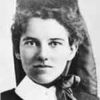Elizabeth Kenny

Elizabeth Kenny
Elizabeth Kennywas an unaccredited Australian nurse who promoted a controversial new approach to the treatment of poliomyelitis. Her findings ran counter to conventional medical wisdom; they demonstrated the need to exercise muscles affected by polio instead of immobilising them. Kenny's principles of muscle rehabilitation became the foundation of physical therapy, or physiotherapy...
NationalityAustralian
ProfessionScientist
Date of Birth20 September 1886
CityWarialda, Australia
CountryAustralia
memories do not always behave in an orderly way, but bloom, as it were, erratically ...
O sleep, O gentle sleep, I thought gratefully, Nature's gentle nurse.
A measure of victory has been won, and honors have been bestowed in token thereof. But honours fade or are forgotten, and monuments crumble into dust. It is the battle itself that matters - and the battle must go on.
It is easier to recount grievances and slights than it is to set down a broad redress of such grievances and slights. The reason is that one fears to be thought of as an arrant braggart.
Panic plays no part in the training of a nurse.
He who angers you conquers you.
It's better to be a lion for a day than a sheep all your life.
The American doctor, in my opinion, possesses a combination of conservatism and that other quality which has put the United States in the forefront in almost every department of science - that is, an eagerness to know what it is really all about in order that he may not be the one left behind if there is something to it.
I do not want medical men to discuss whether or not my work is valuable, because I know what it will do. I want them to tell me how best this new knowledge of rapidly restoring paralysed people to health and strength can be applied where it is needed.
I spent more time on dark ships in danger zones than any other woman in the world.
I came to America to teach my method - not to enter a research experiment.
In the history of medicine, it is not always the great scientist or the learned doctor who goes forward to discover new fields, new avenues, new ideas.
'O sleep, O gentle sleep,' I thought gratefully, 'Nature's soft nurse!'
At first, I was called a quack, a charlatan, and worse, year after year, in Australia, England and the United States, by men who simply refused to believe that a nurse from 'the bush' could devise a treatment which succeeded where they had failed.